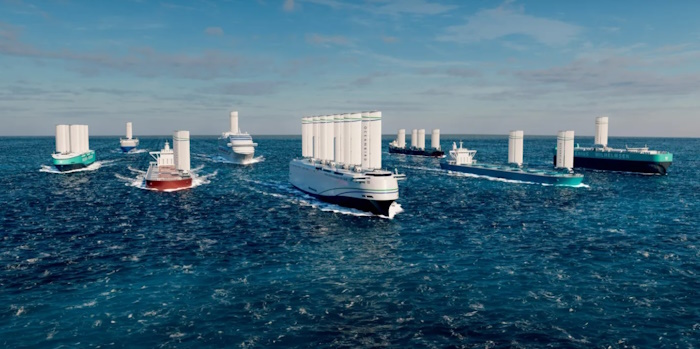How wind tech could help decarbonize cargo shipping

The Marshall Islands, a picturesque chain of coral atolls in the Pacific Ocean, face unique challenges in transportation and environmental sustainability. The inhabitants rely heavily on sea transportation for their daily needs, moving people and goods between islands and importing essentials from distant nations. Historically, the Marshallese sailed in canoes, but today, they depend on large, diesel-fueled cargo ships that contribute significantly to pollution. This article explores the efforts to revive traditional maritime practices and the innovative solutions being implemented to reduce greenhouse gas emissions in shipping.
Reviving Traditional Practices for a Sustainable Future
Alson Kelen, a prominent figure in the Marshall Islands, is leading the charge to revive traditional canoe-building practices. As the founder of Waan Aelõñ, a local canoeing organization, Kelen aims to preserve the region’s maritime heritage while addressing the pressing issue of climate change. The Marshall Islands have been disproportionately affected by the consequences of global warming, including rising sea levels and extreme weather events. Kelen believes that returning to traditional sailing methods can help mitigate these impacts.
His organization focuses on training local youth to construct traditional Marshallese canoes, which are more environmentally friendly than motor-powered boats. Additionally, Kelen is involved in the development of larger sailboats equipped with solar panels, intended to replace medium-sized cargo ships. One notable project is the Juren Ae, a cargo sailboat inspired by traditional designs. This vessel, which can carry up to 300 metric tons of cargo, is expected to reduce emissions by up to 80% compared to conventional fuel-powered ships. Kelen envisions this initiative as a blueprint for cleaner cargo transportation across the Pacific, emphasizing the importance of sustainable practices in the face of climate change.
Innovative Wind-Powered Solutions in Shipping
The global shipping industry is responsible for approximately 3% of annual greenhouse gas emissions, a figure that could rise to 10% by 2050 if current trends continue. To combat this, the International Maritime Organization (IMO) has set ambitious goals to achieve net-zero emissions by 2050. While the Marshall Islands’ shipping practices contribute only a fraction of global emissions, their efforts to decarbonize are part of a larger movement toward sustainable shipping.
One promising avenue is the integration of wind propulsion technologies. Modern cargo vessels can utilize various wind-assisted designs, including rigid sails, kites, suction sails, and rotor sails. These innovations can significantly reduce fuel consumption and emissions. For instance, rigid sails can provide up to 30% of a vessel’s power, while specially designed ships can rely on wind for up to 80% of their energy needs. Kites, tethered to the ship, can harness high-altitude winds, resulting in fuel savings of 9% to 15%.
Suction sails, which create a boundary layer of air to enhance thrust, and rotor sails, utilizing the Magnus effect, are also gaining traction. These technologies have demonstrated potential fuel savings ranging from 5% to 30% on voyages. By embracing these wind-powered solutions, the shipping industry can significantly reduce its carbon footprint while promoting a more sustainable future.
The Marshall Islands are at the forefront of a movement to blend traditional maritime practices with innovative technologies. By reviving canoe-building and integrating wind propulsion into shipping, they aim to create a sustainable transportation system that honors their heritage while addressing the urgent challenges posed by climate change.
